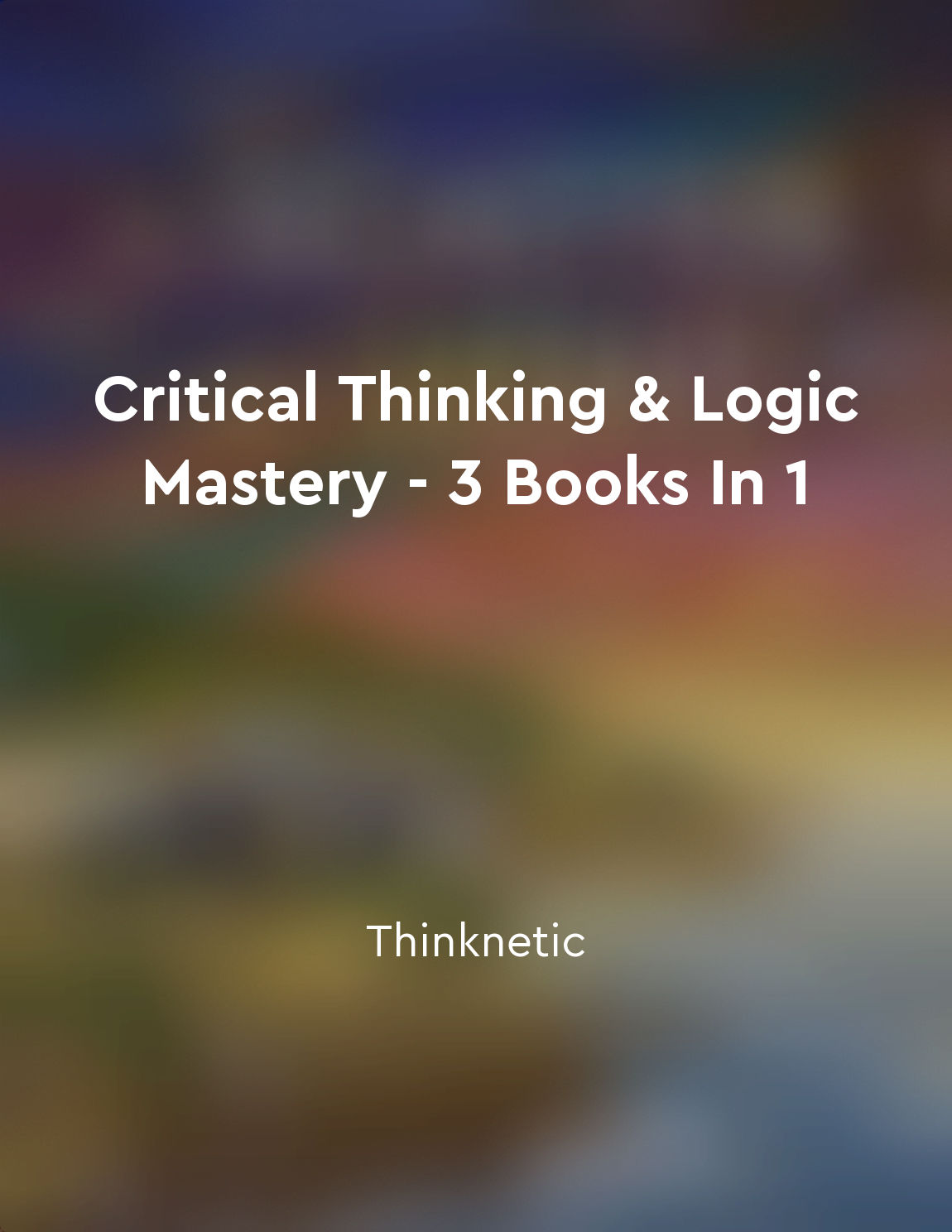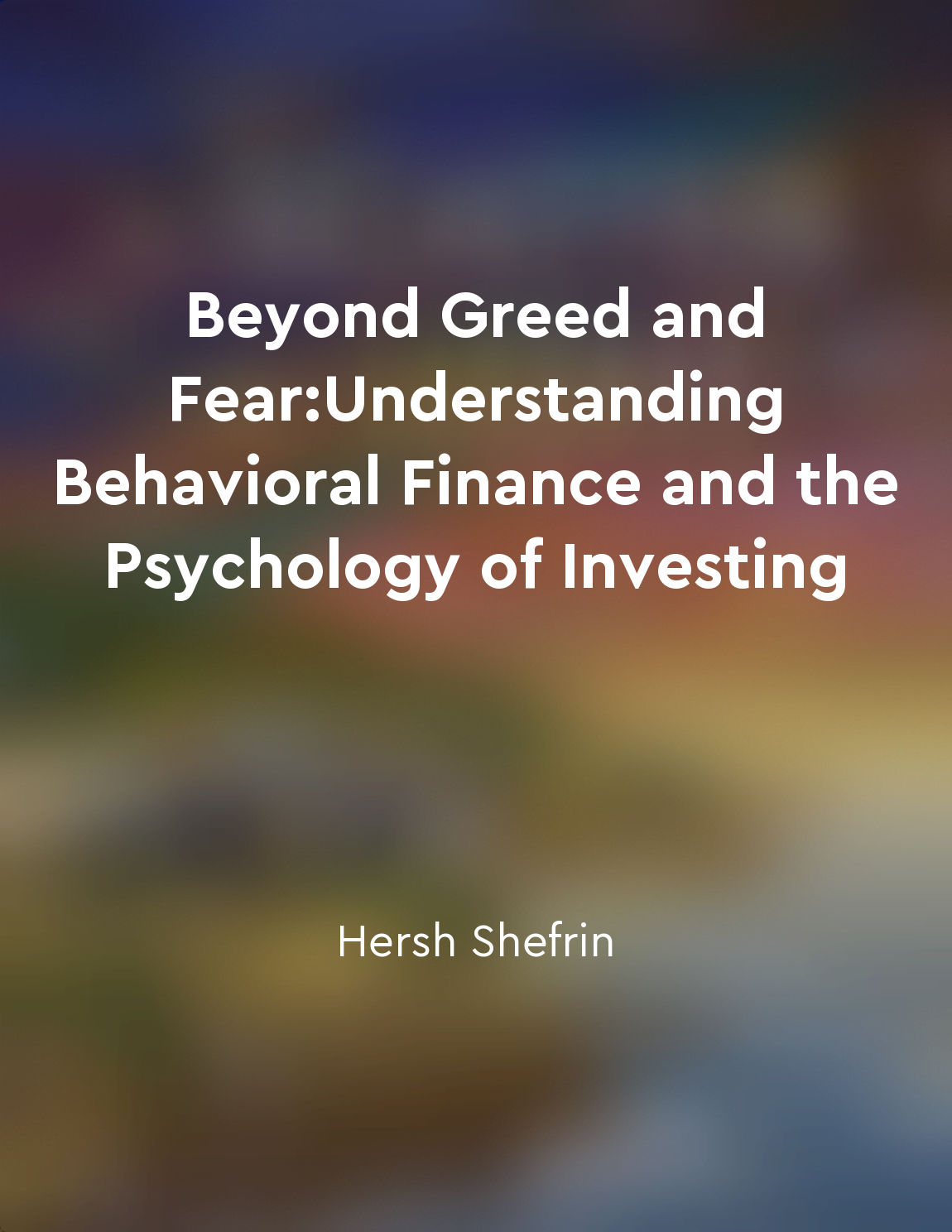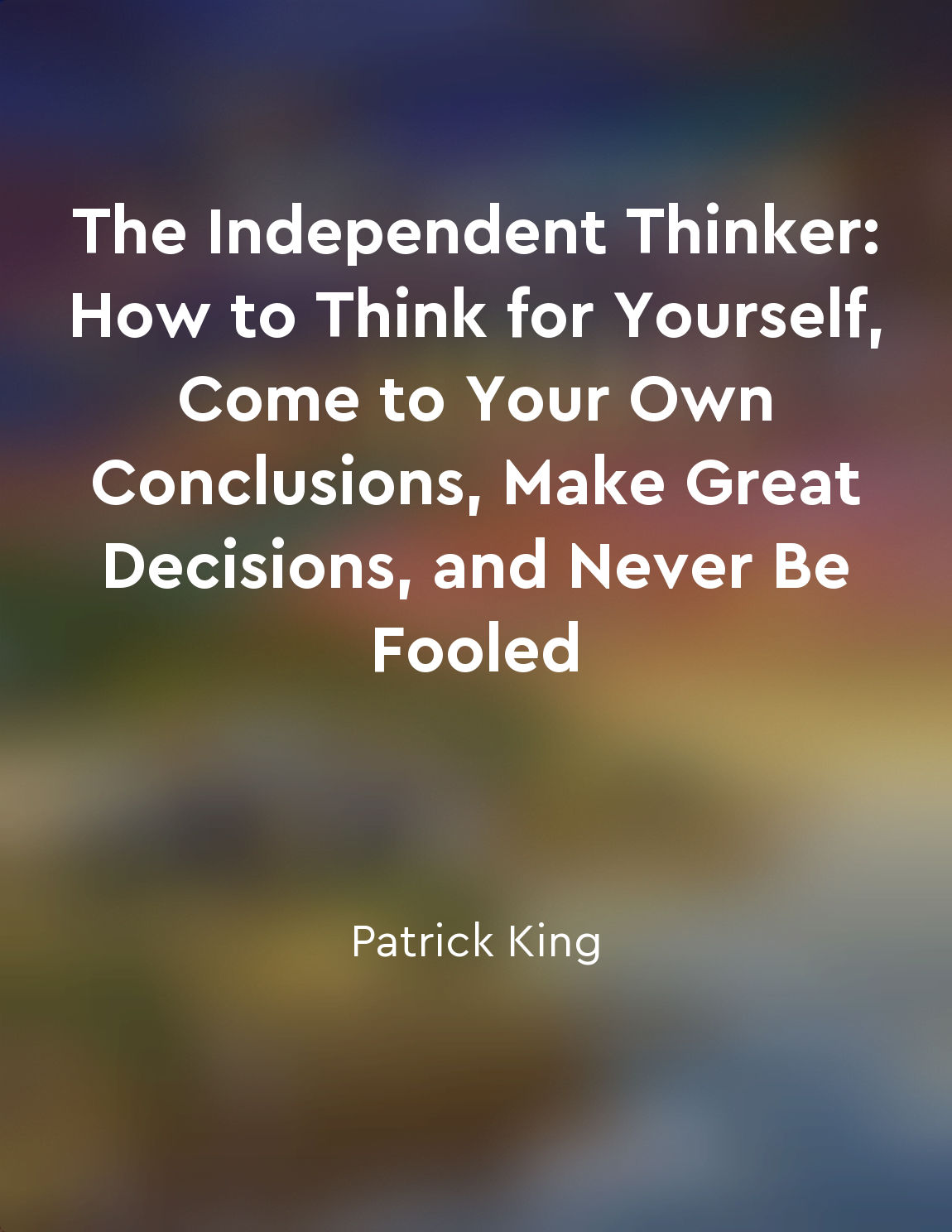Reflecting on past decisions can reveal cognitive biases from "summary" of Your Brain Is Playing Tricks on You by Albert Moukheiber
When we look back on past decisions we have made, we may uncover certain patterns or tendencies that influenced our choices. These patterns are known as cognitive biases, and they can impact how we perceive information, make judgments, and ultimately make decisions. One common cognitive bias is known as the confirmation bias. This bias occurs when we seek out information that confirms our preexisting beliefs or opinions, while ignoring or discounting information that contradicts them. Reflecting on past decisions can help us recognize instances where we may have fallen victim to this bias, leading us to make decisions that were not based on a full evaluation of all available information. Another cognitive bias that reflecting on past decisions can...Similar Posts

Deception is a common strategy
Deception is a common strategy in the realm of dark psychology. It is a tool used to manipulate and control others for personal...
The problem of induction challenges knowledge claims
The problem of induction poses a significant challenge to claims of knowledge. Induction, as a method of reasoning, involves dr...
Evaluate the reliability of sources when gathering information
When you're gathering information, one of the most important things to keep in mind is the reliability of your sources. It's ea...

Recognizing logical patterns aids in decisionmaking
Recognizing logical patterns is a crucial skill that can greatly enhance one's ability to make well-informed decisions. By bein...
Emotions are inextricably linked to cognition
Emotions are not separate from cognition; they are deeply intertwined. When we think about emotions, we tend to think of strong...

Illusion of control can cloud judgment in investing
The illusion of control can lead investors to overestimate their ability to predict the outcomes of their investments. When ind...

Develop a thirst for knowledge and continuous learning
One of the most valuable assets one can possess in life is a thirst for knowledge and a commitment to continuous learning. This...
Operant conditioning involves reinforcement and punishment
Operant conditioning is a form of learning that involves changing behavior through the use of reinforcement or punishment. Rein...

Take ownership of your beliefs
Taking ownership of your beliefs means that you are responsible for what you believe in. It means that you have carefully exami...
Subconscious cues: influence behavior without awareness
Subconscious cues are powerful drivers of human behavior. They have the ability to influence our actions without us even being ...

